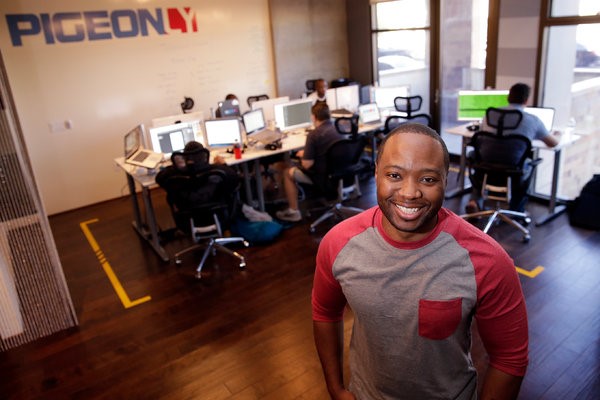The idea of searching for contacts, fighting to secure funding, and facing criticism and tough questions is enough to discourage most would-be entrepreneurs from taking the plunge and starting a business. Frederick Hutson, however, was not discouraged – even though his starting position was much tougher than most.
Hutson’s entrepreneurial drive made itself known very early on – already in high school, he was fixing home appliances and running a window-tinting business. He founded a cellphone store which he later sold for profit. While in the U.S. Air Force, he became involved in a series of small business ventures.
When the Air Force facility in which he served as an engine electrician downsized, he left the army with an honorable discharge and began looking around for the next business to set up or improve. As it happens, he became involved in a friend’s venture – which turned out to be a drug trafficking operation. Although Hutson’s improvements led to a huge increase in profits – he distributed marijuana from Mexico to Florida via FedEx and UPS – the operation was uncovered in 2007 and he found himself facing criminal charges.
It was while he served his 51-month sentence that his million-dollar idea began to grow. He spotted a major, unexplored niche in the market – namely, the lack of a convenient means of communication between the people on the outside and inmates. Prisoners were frequently moved from one facility to another – Hutson himself served his time in eight different prisons – and it was tough for friends and family to keep track of their whereabouts. The expensive calls discouraged long talks, traditional mail was rarely used, and the complicated process of developing and sending photographs meant that prisoners rarely received news from home.
Hutson’s company, Pigeonly, is now the largest platform for communicating with inmates in the U.S., with users worldwide able to quickly and conveniently contact with prisoners in all state, county and federal facilities. It features a centralized database where family and friends can find out an inmate’s current location, and a cheaper solution for making calls – using a concept similar to Skype, where calls are connected via the Internet. Users can upload photos, write emails, and even share online articles via the platform. The Pigeonly staff then prints the material and posts it to the right prison. Hutson’s company also oversees an online support community for families of inmates.
Rather than attempting to downplay his past while looking for investors during Pigeonly’s early days, Hutson used his experience to prove the viability of his business concept. His advice to entrepreneurs like himself – coming from an unusual place with an unconventional idea – is simple: “Use the fact that you don’t fit in as a strength, and lead with your unique background.” With the help of several tech accelerators – including the prestigious Y Combinator – the company has raised over $6.5 million to date, expanding its services, helping people stay in touch despite immense barriers, and proving that one entrepreneur’s vision and perseverance can bring real change to the world.





